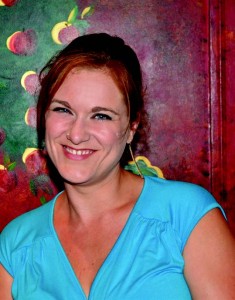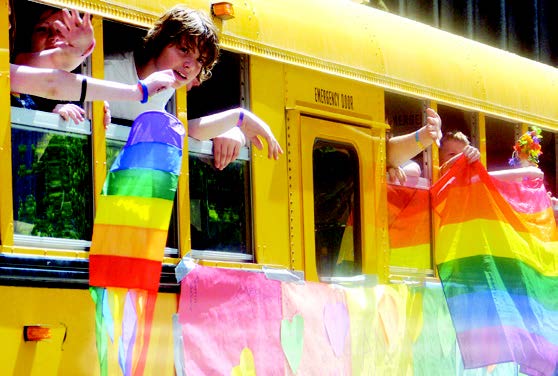 When I was in middle school, a friend asked me why I didn’t support gay marriage. I told her that I believed marriage was between a man and a woman. She became understandably very upset with me, and wanted to argue on a subject that we both had very strong feelings about. She was not about to change my mind, and I was not about to change hers, and a heated debate would accomplish nothing except to create a rift in our friendship.
When I was in middle school, a friend asked me why I didn’t support gay marriage. I told her that I believed marriage was between a man and a woman. She became understandably very upset with me, and wanted to argue on a subject that we both had very strong feelings about. She was not about to change my mind, and I was not about to change hers, and a heated debate would accomplish nothing except to create a rift in our friendship.
I left the exchange feeling attacked, unheard and frustrated, and she seemed to feel the same, as she brought friends over later to try to change my mind again. This interaction stuck with me, though. Over time, it became one of my big motivations to learn more about listening, about LGBTQ history, and about how to be a good ally, especially one who can talk to people with opposing viewpoints without making them feel alienated, as I was made to feel.
LGBTQ Studies seemed like the perfect way for me to do this. I remember feeling a little hesitant to show my parents the syllabus for Ms. Schlax’s brand new LGBTQ class; I would have to calmly explain why I wanted to take the course, and my personal frustrations and confusion about society would have no doubt infringed on my ability to articulate. I still have very strong feelings about why I’m taking this course, but the most important reason is about learning to be a helpful ally.
At first I did not understand why my fellow middle school classmates attacked me the way they did, but since high school, I’ve been able to know actual members of the LGBTQ community, and, on some level, familiarize myself with their experience and how society’s perception of them affects their personal lives. Of course, I still have a lot to learn, and LGBTQ studies is sharpening my awareness and sensitivity on the subject.
 One piece of advice that I’ve received from class is to reach out and educate yourself. “You don’t know what you don’t know,” Schlax said, and that rings very true to me. I live in San Francisco where there is seemingly overwhelming support for the gay community, but it wasn’t until I met LGBTQ people and heard their stories that I really saw reason for legislation protecting their rights in this country. The class has taken that a step further, and delves into a nearly erased heritage and history that widens all of our perspectives, giving us the ability to make helpful and informed decisions. Our class uses both written accounts from the past, and contemporary resources to explore the roles alternate sexualities and non-cisgender people have played in humanity, and how and why those roles have changed.
One piece of advice that I’ve received from class is to reach out and educate yourself. “You don’t know what you don’t know,” Schlax said, and that rings very true to me. I live in San Francisco where there is seemingly overwhelming support for the gay community, but it wasn’t until I met LGBTQ people and heard their stories that I really saw reason for legislation protecting their rights in this country. The class has taken that a step further, and delves into a nearly erased heritage and history that widens all of our perspectives, giving us the ability to make helpful and informed decisions. Our class uses both written accounts from the past, and contemporary resources to explore the roles alternate sexualities and non-cisgender people have played in humanity, and how and why those roles have changed.
On the way back home from a summer art intensive, I recounted all my memories to my godfather. He was surprised to hear that many of my classmates identified as members of the LGBTQ community, recalling that they had a much less visible existence in his own youth. In my childhood, I heard that gay people didn’t even exist until the twentieth century. Even including events like Stonewall in our history books can make such a big difference.
In Becoming Visible, Kevin Jennings explains the importance of teaching gay and lesbian history, and how discovering the existence of people like himself gave him proof that gay people can still lead happy existences and satisfying lives. The social media also provides a great deal of visibility. I remember how surprised I was when I read people’s stories online about their journeys, and how they found the courage to continue living despite bullying and alienation from their schools and families. I may not be part of the LGBTQ community, but I know that I want to spread the same love and support those posts offered.
For more information about the Ruth Asawa San Francisco School of the Arts, please visit http://www.sfsota.org/
Recent Comments